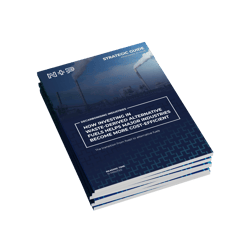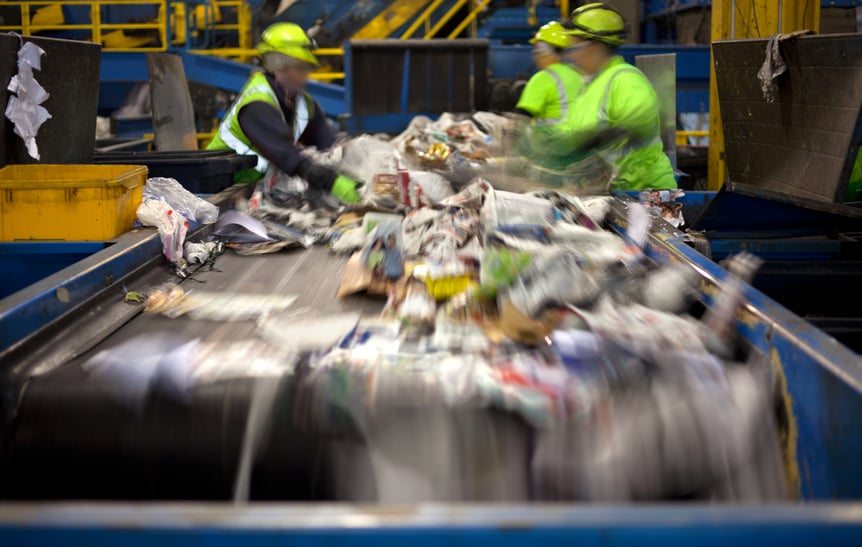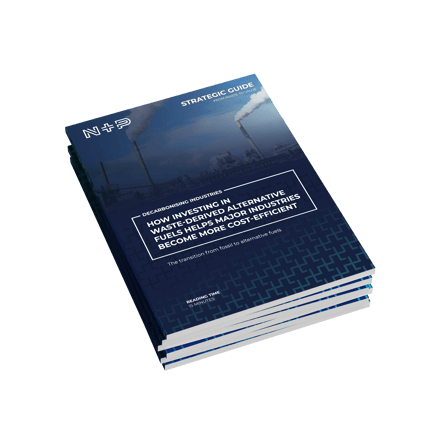Waste ticks many boxes as the ideal alternative fuel source to replace fossil fuels like coal. There are potential benefits in terms of CO₂ emissions, availability and the possibility of implementing it within your production process. But waste to fuel companies come a long way when you look at how we can effectively use waste as fuel.
It´s more than just burning waste. It´s the art of sorting and processing non-recyclable waste streams and composing the right chemical and physical mixture to create the ideal fuel source for your specific industry.
It´s inevitable: where people live, there is waste, and waste to fuel companies find a purpose for it
We rather do something with our waste than bury it underground or using it ineffectivly. ¨Why would anyone do that?¨ I hear you think. But yes, the landfill problem is becoming bigger than ever, and growing populations and industries are only producing more waste.
Harmful methane emissions arising from landfills are speeding up global warming, and industry utilizing fossil fuels as a primary fuel source are limited to alternatives they can use. Why not combine the two and let companies create a locally produced alternative fuel which helps to reduce landfills and is a very good fossil fuel substitute?
In the past decades, it became clear that waste can be a great fuel source. And with that, waste to fuel companies solve two major problems at once. On the one hand, the global landfill and waste problems. On the other hand, we provide a better alternative to burning fossil fuels like coal.
When choosing the best composition, some important considerations should be made. Do you want to know the most commonly-faced challenge? Download our strategic guide and learn how to to overcome them.
How the way we look at waste as a fuel source changed over time
Back in the day, many companies saw a quick win and took the waste as it was presented to them. Changed the physical composition - if necessary - and presented it as fuel. Nowadays, waste to fuel companies, like N+P Group, has developed innovative ways to sort and optimize non recycable waste into a new product, a real fuel.
This way, we improve the fuel's performance allowing up to 100% substitution, unlocking new possibilities to use it in different industries like cement, lime, steel and power plants. This all improved the value of alternative fuels over time from both an economic and ecological perspective.
Waste to fuel companies can produce a stable burning fuel that improves industrial processes
We are still improving and unlocking the potential of waste-derived fuels by developing new specifications to turn the waste mixture into a valuable fuel pellet or pulverized alternative fuel for “new” industries which have stringent quality requirements.
Because of the learnings and developments, the waste-derived alternative fuel is becoming more attractive for several industries by the day. With the right processes, you can actually reprocess the waste from an average garbage bag into a high-quality fuel and sort as much materials out of it to be reused again.
The different approach that waste to fuel companies should have
To be honest, not all alternative fuel companies think the the same. In our opinion, the process and application of the end-user should always be leading in the development process of the specific alternative fuel. By being closely involved with the implementation process of factories that use alternative fuels, waste to fuel companies can really make an impact.
By understanding the process of a potential client and knowing their limitations, you can take action and show that the limitations are not there if they use the right alternative fuel. The diversity of waste streams unlock a lot of potential.
That´s what we like to do the best: turning a heterogenic material like waste into a certain homogenous product to achieve a valuable application within industries.

Want to know more about the necessary permitting requirements and best practices as to how to obtain them? Our latest strategic guide contains more in-depth information and practical tips



